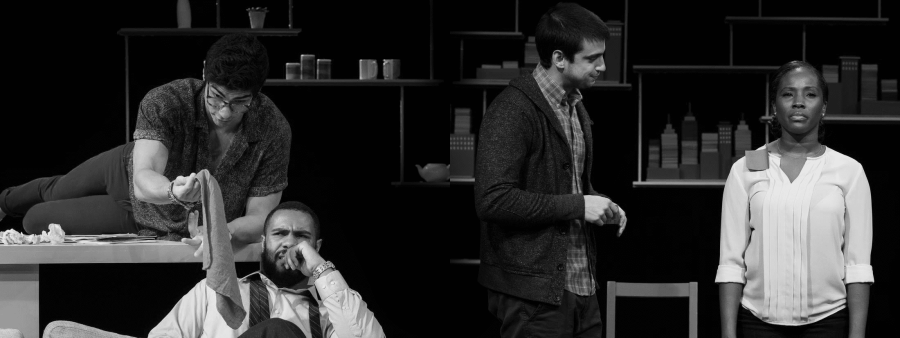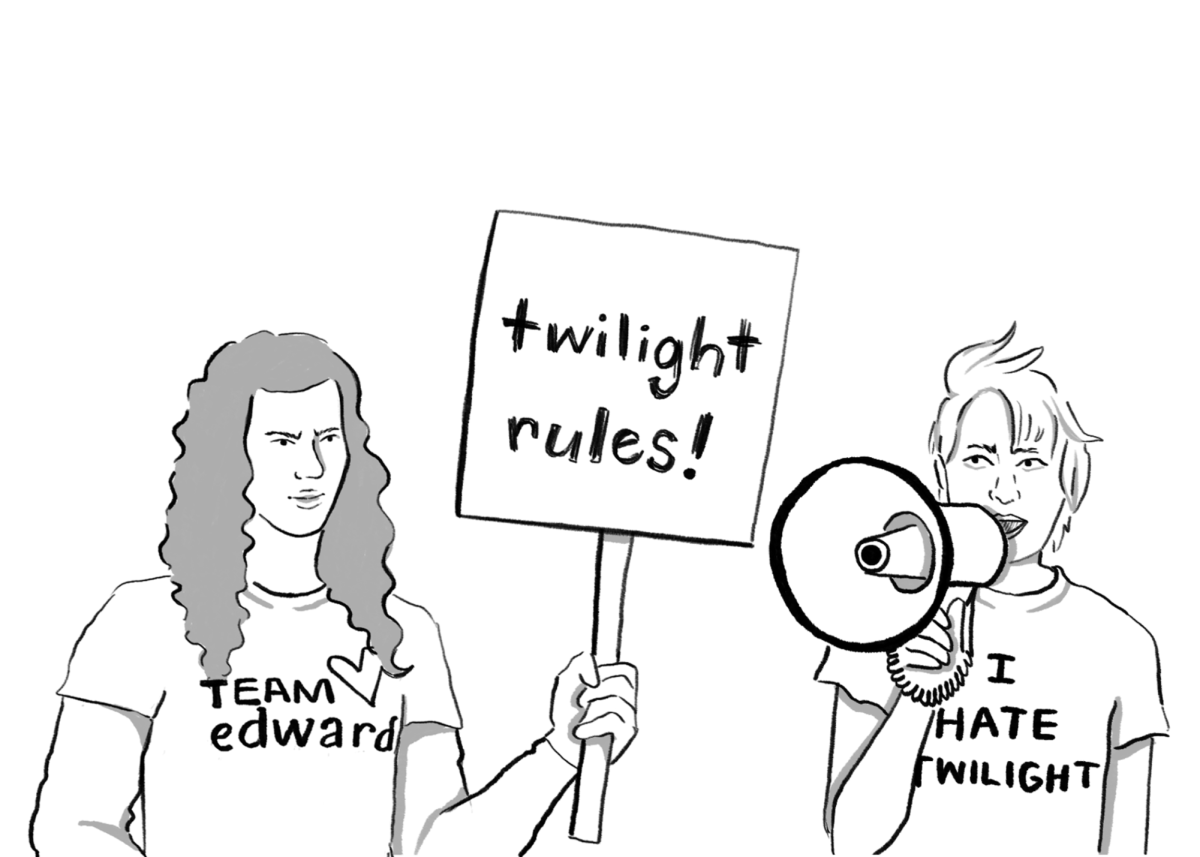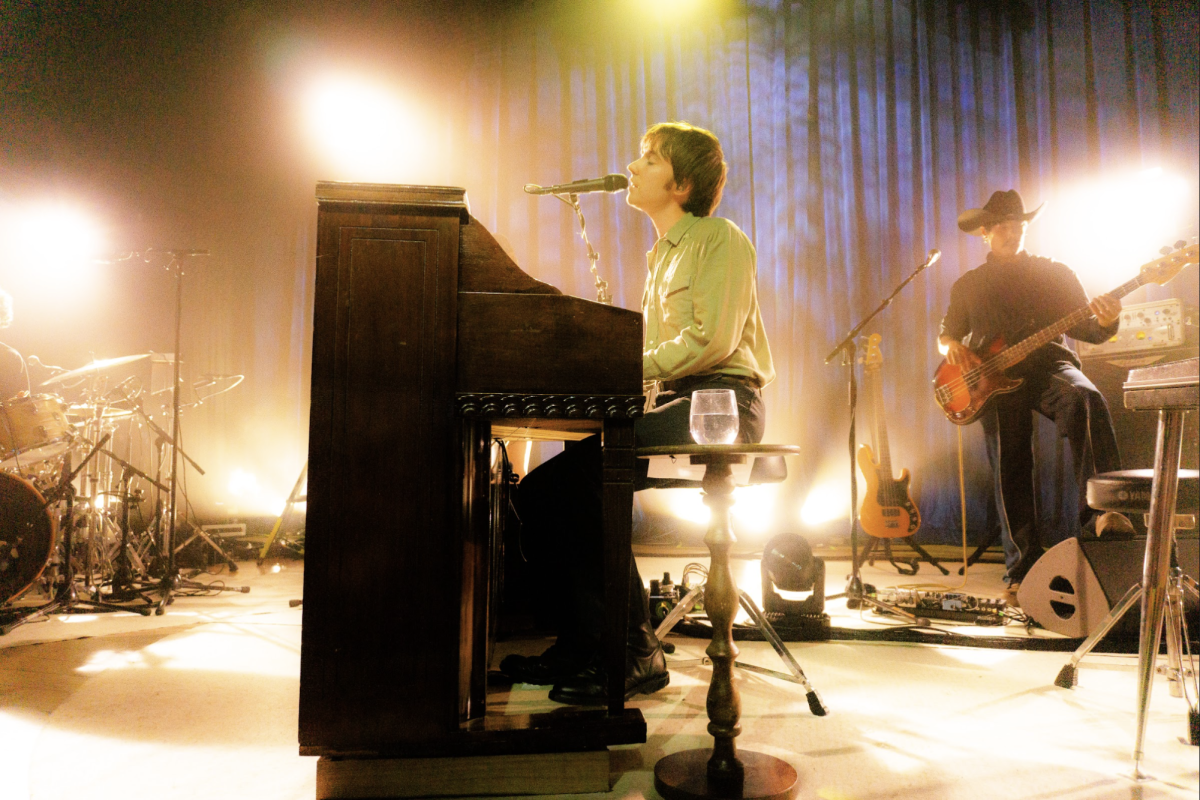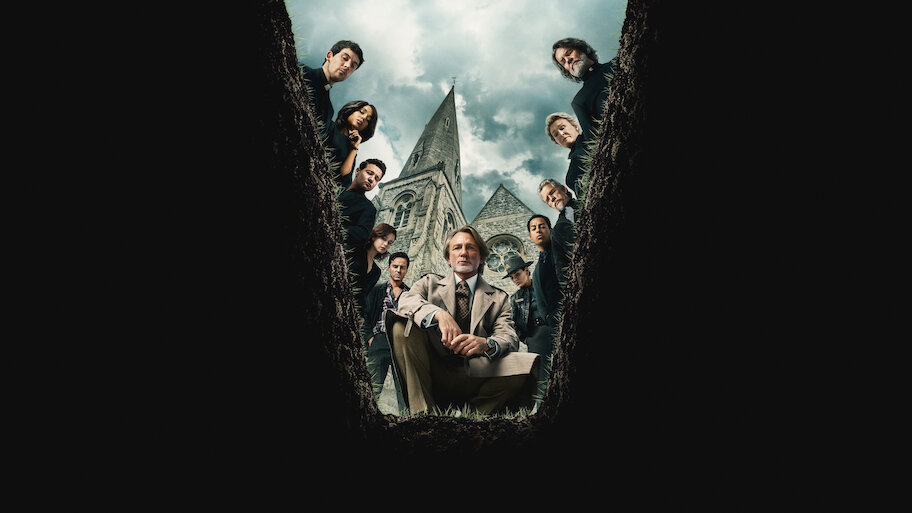“We all end up pulp.” This is the dominant motif of the bleak comedy, “Baby Teeth.” Part of the New Wagner Play Festival, “Baby Teeth” exposes and investigates our self-destructive tendencies to stifle our true desires in order to satisfy the demands of domesticity.
The play takes place in the home of the quick-witted, renowned painter Elise (Hannah Finn) and her husband Rod (Sidney Hill), a reclusive, artistically-unenlightened real-estate agent. With the entrance of Elise’s new personal assistant, Dave (Enrico Nassi), their gilded lifestyle is revealed to be cloaking unspoken fears and desires. From a traumatic childhood to a secret artistic expertise to a clandestine love affair, the characters’ hidden afflictions and aspirations start to bubble to the surface, and Dave is the catalyst for the concurrent destruction of all of their facades.
Geyer expertly couches intellectual concepts and the characters’ arcane psychological features in colloquialism, mundane interactions and metaphor to create an intimate portrait of domesticized humanity. In one particularly comedic moment, Rod shocks everyone when he comes home with tomatoes from the farmers’ market. The tomatoes turn out to be a very big deal. They serve as the physical embodiment of the domesticized identity Rod — Elise and Dave, too, for that matter — has assumed.
The set itself screams bourgeoisie: hanging shelves adorned with a hodgepodge of household items including a coffee maker, an excessive amount of miniature potted plants and abstract metallic sculptures and pairs of beige leather shoes lined up neatly near the couch.
Scene transitions are guided by a monotonous chopping noise. At first, the sound is identifiable as vegetables being systematically sliced on a chopping board. However, it could also be taken for a ticking clock — a playful jab at bourgeois household activities and a simultaneous reference to impending doom and the machine-like conformity of domesticity, creating a sense of foreboding.
Tensions mount to explosive levels, and soon enough, all secrets are revealed in a clash of events that triggers the sound of Elise blending Rod’s locally-sourced tomatoes to a pulp — leaving audiences to reexamine those scene transitions, among other things.
The play’s exploration of unexpressed human desires reveals that the lies we tell ourselves to appease our existential anxieties can’t be sustained and that the simultaneous obliteration of our fabricated identities and social constructs is inevitable. “Baby Teeth,” like its characters, is steeped in ambiguity, and it lingers.
◊
“Are You There” takes a different approach to the modern love story. Del Rosso utilizes tempo and imaginative technological inventions to create a fresh, consistently funny and poignant examination of the parameters and potential of human intimacy.
The young and ambitious Adam (Allyn Moriyon) and June (Kimberly Monks) both land their dream jobs, which happen to be on opposite sides of the country. Their predicament and intense determination to weather the separation incites a journey through time, space and technological advancements. The play unfolds as an exploration of humans’ attempts to connect to each other via various modes of communication.
Initially, things look promising. The career couple plans video-chat dinner dates, engages in regularly scheduled phone calls, devises new and comical ways to simulate sexual intimacy and gushes over their respective new jobs. However, as Adam and June’s relationship moves through FaceTime, virtual reality, holograms and eventually implanted chips that allow them to hear each other’s thoughts, fissures begin to emerge in their East coast-West coast love affair. June loses her cellular connection, Adam misremembers their first date and technology proves itself to be as much their enemy as the passage of time and space.
Time moves quickly in the play, sometimes spanning years in a matter of seconds. The quick pace mirrors the frenzied nature of technology while keeping the audience intensely engaged. Midway through the show, the two meet in person for a highly anticipated reunion that is ultimately less than sweet. Their awkwardness is palpable and their passive-aggressive attempts to rekindle their desire for each other are laugh-worthy but also profoundly crushing.
The play’s contemporary dialogue and references to modern communication make its message all the more resonant. Despite the show’s intermittent moments of humor, Adam and June’s asynchronous evolutions contribute to a fairly grim ending. We are left to ponder what went wrong and whether the promise of the honest connection June and Adam sought after is truly attainable.
“Baby Teeth”
Director: Jon Reimer
Writer: Ava Geyer
Starring: Hannah Finn, Sydney Hill, Enrico Nassi
Runs: May 12–May 20
Location: Arthur Wagner Theatre
“Are You There?”
Director: Zora Howard
Writer: Steph Del Rosso
Starring: Kimberly Monks, Allyn Moriyon
Runs: May 12–May 20
Location: Arthur Wagner Theatre
Photo Courtesy of Jim Carmody








